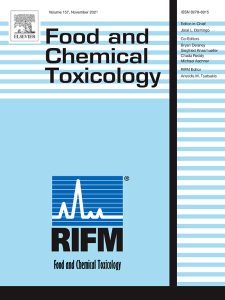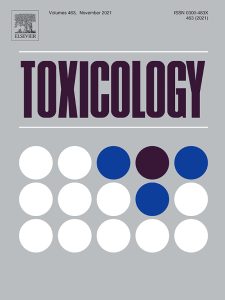We’re thrilled to bring to your attention two projects CRIS has recently completed on CBD.
We’re thrilled to bring to your attention two projects CRIS has recently completed, one which has been published and the second that has been accepted for publication in peer-reviewed journals. It’s always exciting to have the opportunity to advance the state-of-the-science through research and to share this new information with colleagues and the public as in this case with cannabidiol (CBD).
Our first publication is a consumer-focused collaborative white paper that thoroughly highlights our current science-based and regulation-based understanding of CBD. Many thanks to Dr. Jinpeng Li, Ricardo Carvajal, Esq., and Dr. Leon Bruner for an excellent collaboration.
 Title:
Title:
The current understanding of the benefits, safety, and regulation of cannabidiol in consumer products
Abstract:
The popularity of cannabidiol (CBD) in consumer products is soaring as consumers are using CBD for general health and well-being as well as to seek relief from ailments especially pain, inflammation, anxiety, depression, and sleep disorders. However, there are limited data currently in the public domain that provide support for these benefits. By contrast, a significant amount of safety evaluation data for CBD have been obtained recently from pre-clinical and clinical studies of the CBD therapeutic Epidiolex®. Yet some key data gaps concerning the safe use of CBD still remain. Furthermore, current regulations on CBD use in consumer products remain uncertain and often conflict between the state and federal level.
In light of the rapidly expanding popularity of CBD-related products in the marketplace, here we review the current understanding of the benefits, safety, and regulations surrounding CBD in consumer products. This review does not advocate for or against the use of CBD in consumer products. Rather this review seeks to assess the state-of-the-science on the health effects and safety of CBD, to identify critical knowledge gaps for future studies, and to raise the awareness of the current regulations that govern CBD use in consumer products.
Journal: Food and Chemical Toxicology
Read the paper now at https://pubmed.ncbi.nlm.nih.gov/34626752/.
There is a significant interest in the food and beverage industry in capitalizing on the biological activity of the plant-derived cannabinoid, cannabidiol (CBD). One of the primary biological (medicinal) properties ascribed to CBD is anti-inflammatory activity. We conducted research to explore this potential anti-inflammatory activity, which was recently accepted for publication in the journal, Toxicology.
Many thanks to Dr. Jinpeng Li, Sera Sermet, Anthony Bach, and Robert B. Crawford for their diligent work on this project.
 Title:
Title:
Cannabidiol selectively modulates interleukin (IL)-1β and IL-6 production in toll-like receptor activated human peripheral blood monocytes.
Abstract:
Cannabidiol (CBD) is a major non-euphoric cannabis-derived compound that has become popular in its over-the-counter utilization. CBD possesses low affinity for cannabinoid receptors, while the primary molecular target(s) by which CBD mediates biological activity remain poorly defined. Individuals commonly self-medicate using CBD products with little knowledge of its specific immunopharmacological effects on the human immune system; however, research has established primarily in rodent models that CBD possesses immune-modulating properties.
The objective of this study was to evaluate whether CBD modulates the innate immune response by human primary monocytes activated through toll-like receptors (TLR) 1-9. Monocytes were activated through each TLR and treated with CBD (0.5-10µM) for 22 hours. Monocyte secretion profiles for 13 immune mediators were quantified including: IL-4, IL-2, IP-10, IL-1β, TNFα, MCP-1, IL-17a, IL-6, IL-10, IFNγ, IL-12p70, IL-8, and TGF-β1. CBD treatment significantly suppressed secretion of proinflammatory cytokine IL-1β by monocytes activated through most TLRs, apart from TLRs 3 and 8. Additionally, CBD treatment induced significant modulation of IL-6 production by monocytes activated through most TLRs, except for TLRs 1 and 3. Most other monocyte-derived factors assayed were refractory to CBD modulation.
Overall, CBD selectively altered monocyte-derived IL-1β and IL-6 when activated through most TLRs. This study is of particular importance as it provides a direct and comprehensive assessment of the effects of CBD on TLR-activated primary human monocytes at a time when CBD-containing products are being widely used by the public.
Journal: Toxicology
Read the paper in a future issue of the journal, Toxicology. We will be sharing copies of the article at the annual meeting with those interested in learning more about CBD.
On this excellent note, we look forward to seeing you virtually and in person at next week’s Annual Meeting and Science Day.
Best regards,

Norb Kaminski, Ph.D.
Professor, Pharmacology & Toxicology
Director, Center for Research on Ingredient Safety
Director, Institute for Integrative Toxicology
Michigan State University
